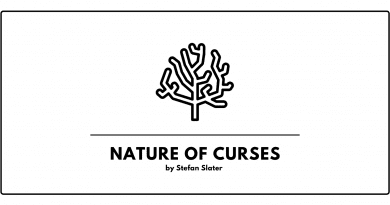Flash Fiction Online – May 2020
Against the Dying of the Light by Stewart C Baker (998 words)
Alyssa is a reporter whose mother is about to undergo an experimental treatment for dementia. The process brings up many difficult feelings for Alyssa, who feels troubled witnessing the events.
The poignancy and emotion are rendered well, but I can’t help feeling disturbed by the piece. While she considers how to frame her article, Alyssa knows that “she wants to make it clear her mother is a victim of dementia without making her seem like she’s an infant, incapable of independent thought.” Yet the story does exactly that. For example, it’s not clear whether or not Alyssa’s mom actually consented to the procedure. In fact, as she’s about to undergo surgery, she has an episode and doesn’t recognize what’s happening, going so far as to say, “They’re killing me! Help! Help!” As the story goes on, it seems as if Alyssa’s mother truly didn’t consent to the procedure at all; in fact, she hates it and “want[s] it to stop,” only getting relief after signing away access to data from her procedure.
Alyssa has chosen the treatment on her mother’s behalf, which feels to me like a gross violation of her mother’s agency. The narrative highlights the importance of the decision on Alyssa, rather than on her mother, which makes this piece feel like yet another story about how difficult it is for a caretaker to be around someone disabled—not a sentiment I’m a fan of in my fiction. But I could also see this piece being framed as horror, in that the creeping denial of Alyssa’s mother’s agency is the dystopia in itself on display. Hard to tell, though. The narrative could have been clarified by developing the atmosphere of the piece even further.
Mirrored by Jennifer Hudak (993 words)
A girl was almost stolen away by fairies when she was a baby, but her mother saved her in time, and the fairy changeling was banished and trapped in a mirror. As the girl on the other side of the mirror grows up, though, she becomes more and more ungrateful, even going so far as to scream at her mother. The changeling realizes that she can be freed if she entices the miserable mother to run away from her daughter through the mirror. Interesting concept, execution isn’t particularly memorable.
Shelter, Sustenance, Self by Aimee Ogden (826 words)
Phil is an android who has been animated with the late Phil’s consciousness, but, because he is only machine, he can’t respond to sensory input and emotion the same way the late Phil would have. Despite that, his young daughter Christy accepts him and is happy in his presence. I didn’t expect the hopeful ending, but I feel like Black Mirror 2×01 explored this very premise with more nuance and less of the machine : logic :: organic : emotion binary.
Blood Magic by Angela Teagardner (993 words)
Nora performs a blood magic ritual to save her infant. She purposely goes alone, knowing that the ritual might mean sacrificing her life; she doesn’t want her husband Adrian to face that risk. However, he comes in at the last moment, and the ritual to save their child is successful. Vivid, lush writing steeped in very specific detailed, making the world feel lived-in with a strong atmosphere. My only critique is that the stakes could be made clearer—I wasn’t sure what exactly the baby was being saved from. The specifics don’t matter much in the end, but I would have felt a bit more momentum with that part clearer.




Pingback: The Arcanist – May 21, 2020 – microverses